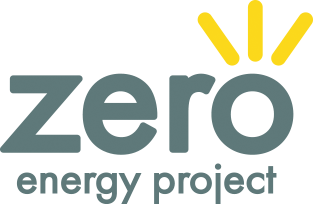By
There is a lot of sizzle in real estate advertising these days. Probably because there are a lot of new features and designs to entice home buyers. New innovations in appliances, advancements in smart home systems and new materials and colors in homes are raising the bar for both new and resale homes. Just as exciting are the new marketing phrases that go along with those new advancements.
If you are in the market to buy a home, read the sales material carefully. If you aren’t sure about a phrase or a term, make sure to ask what that means. If you see a feature that you’ve never seen before, ask how it works and what the benefit is for having that feature in your home.
If you aren’t getting all of the information that you need, do your own research about a given home online to help answer your questions,. Just because a home is listed as “energy efficient” does not always mean the entire home is energy efficient, especially if the home is not new construction. Look for a third-party energy rating to ensure that energy saving measures have been verified.
Exaggerated claims such as “super energy efficient” without any correlating documentation are a clear sign that a real estate agent does not understand what they are marketing. Ask specific questions as to what makes that home energy efficient.
Another phrase that is being marketed commonly is “green.” Ask what makes that home “green.” Is it more energy efficient? Does it have better air quality? Does it have non-toxic finishes?
The term “green” is becoming over-used and most professionals in the industry today don’t use it when speaking in industry language. But it is a term that the public still relates to as possibly having features that lower energy costs, provide better indoor air quality, and provide greater comfort in a home.
If the finishes inside the home are described as “green” then ask for specific information on each feature. For example, bamboo flooring comes from a fast-growing plant that can be harvested many times. It is a renewable resource. On the other hand, granite is not a renewable material. When granite is mined from a quarry, that resource is gone. Be sure to ask for copies of receipts and information as they pertain to specific green features. If they are talking benefits and using phrases such as “better indoor air quality” then ask what feature was added to achieve that result and ask them to explain how it works. Same goes for “better water quality.” Regarding claims for energy efficiency, ask your real estate broker to provide documentation of energy efficient features and of actual or projected energy savings. Existing homes will have a history of utility bills to show performance.
False claims without certificates, receipts or documents can demonstrate a real estate agent’s inability to explain the features simply because they aren’t trained to do so. When interviewing an agent, ask what education and training on green high performance homes they have undertaken. Follow up with your research and ask for letters of recommendation from past clients and, if available, other real estate agents. Or you can peruse the directories available at the Zero Energy Project to find a real estate agent in your area, who has a green, or high performance, home designation.
No matter how well trained your Realtor is, when looking for a green home, ask her or him to document and verify all claims for the home being green, sustainable, and energy efficient. Then you can be sure your new home will have substance to match its sizzle.
Jan Green
REALTOR®, GREEN®, SFR, EcoBroker®
RE/MAX Excalibur


